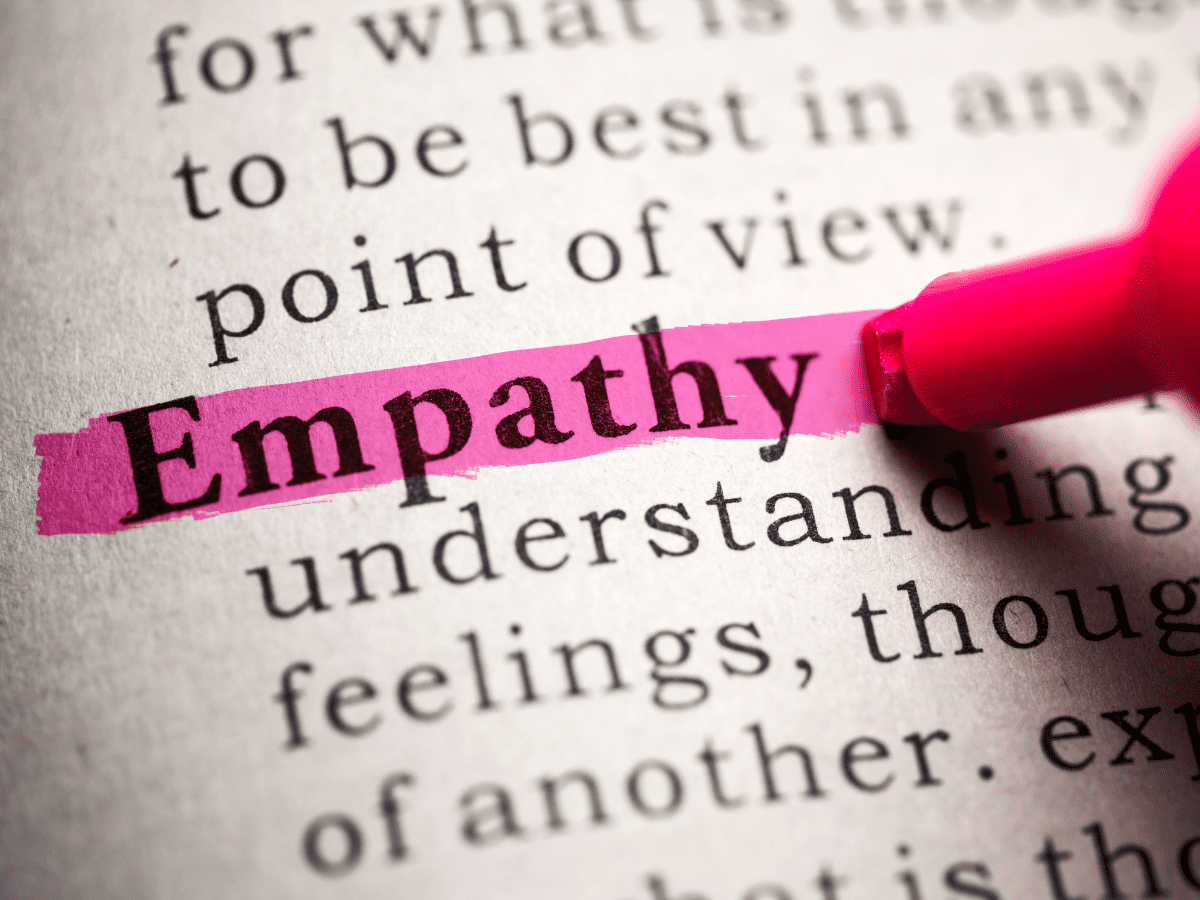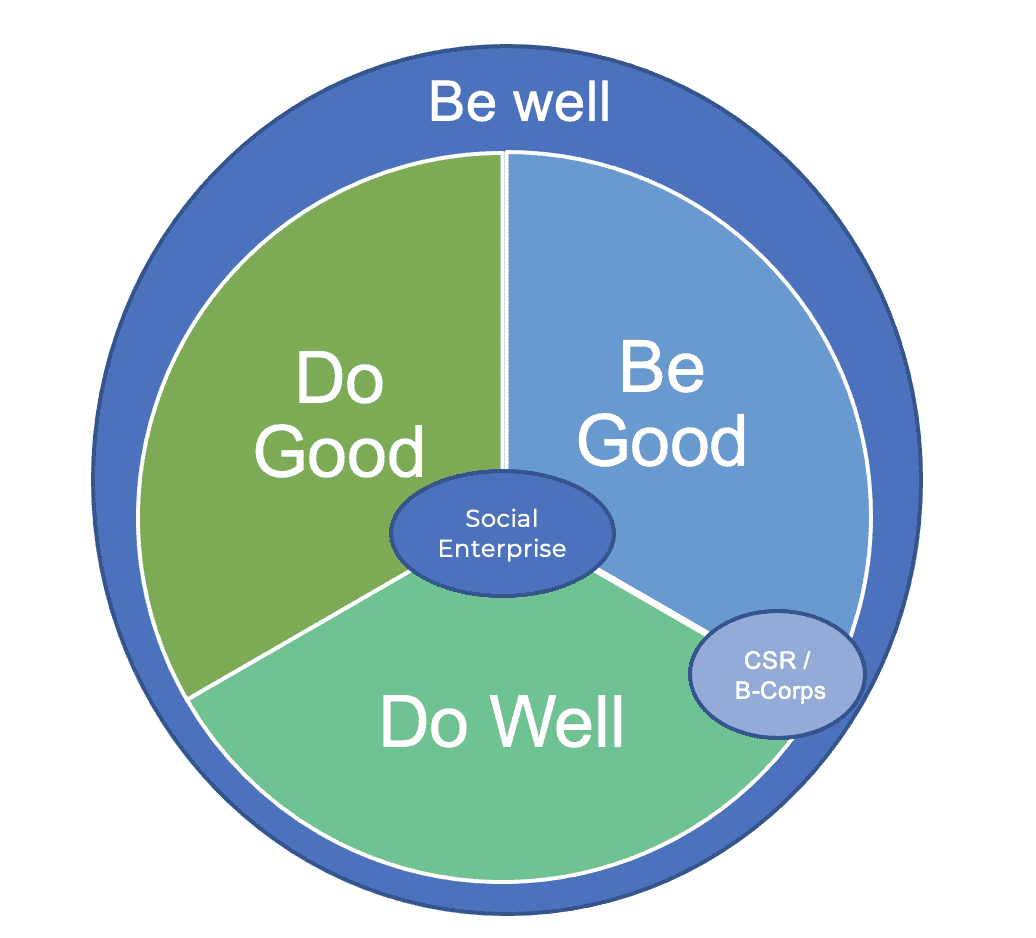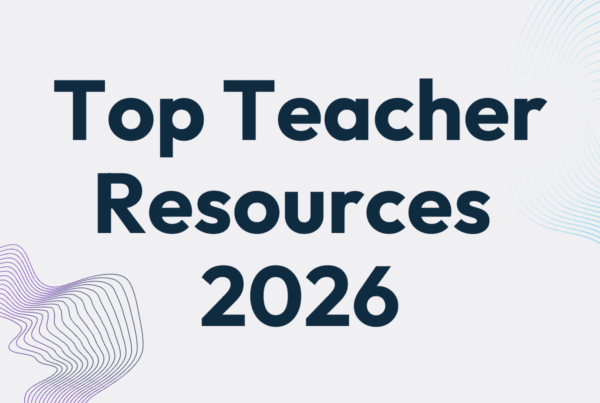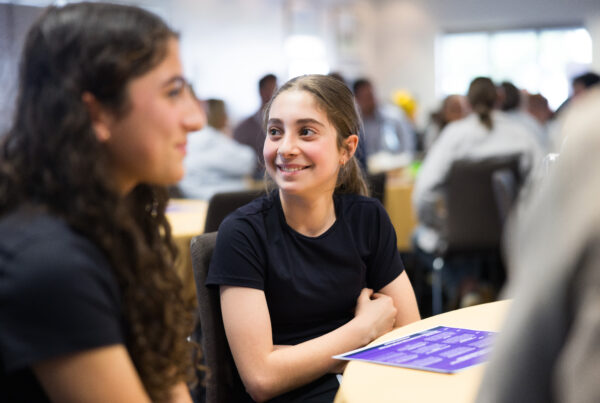
Healthy Empathy in Social Enterprise: Building Meaningful Connections for Sustainable Impact
by Leanne Butterworth, Empathy Educator, Social Entrepreneur and Future Anything Activator
As a Future Anything Activator, a social enterprise lecturer at QUT and social entrepreneur myself who has had exposure to countless pitches in the social enterprise sector, the fundamental question I repeatedly find myself asking is: “Who and why?”
This question brings us back to the essence of social enterprise, which centres around putting purpose at the heart of business. In this blog, I’ll explore the significance of empathy in social enterprise and discuss the three types of empathy: emotional, cognitive, and compassionate.
By understanding and harnessing empathy, social entrepreneurs can forge meaningful connections with the people they care about and create sustainable, positive change.
The Model: Do Good, Do Well, Be Good, Be Well
To begin, let me present my model of Social Enterprise: “Do good, do well, be good, be well.”
Each segment of this model represents a crucial aspect of social enterprise:
- identifying the problem you aim to solve (do good),
- generating revenue by selling products or services (do well),
- conducting business in an ethical, sustainable, well-governed, empathetic way (be good),
- and, ensuring the well-being of all involved (be well).
It is essential to recognise that within each segment, various stakeholders come into play: beneficiaries in the do good segment, customers in the do well segment, the community and suppliers in the be good segment, and employees in the be well segment.
Empathy is a life long skill
Healthy empathy is key to establishing genuine connections with these stakeholders. But what is healthy empathy?
It’s a concept that is widely misunderstood yet is hugely powerful. So here’s a quick summary:
When we think about empathy, we often think about it as a singular entity or believe some of the myths like ‘empathy is a weakness’ or ‘you’re either born with it or you’re not’.
The truth is, whilst empathy is complex and nuanced, at its core, it is a lifelong skill that can be practiced and improved.
The model of healthy empathy that I like is by Goleman & Ekman. It describes empathy as having three types – emotional, cognitive and compassionate.
If you’d like to learn more about healthy empathy, check out my TEDx talk on the subject.
Applying Empathy in Social Enterprise
To harness the power of empathy in your social enterprise journey, take a moment to map out your do good, do well, be good, be well segments.
Identify the individuals or groups you interact with in each segment, such as beneficiaries, customers, the community, suppliers and employees.
Once you have visualised these connections, ask yourself how you can better share and understand the feelings and perspectives of each stakeholder and respond appropriately. Here are a few considerations:
- Actively listen: Create spaces for dialogue and listen attentively to the voices of your stakeholders. Seek to understand their emotions, experiences, needs, and aspirations. If you’re not able to speak to them in person, do a ton of research. Read their stories, watch documentaries.
- Practice perspective-taking: Put yourself in the shoes of your stakeholders. Practice cognitive empathy to consider their unique circumstances, challenges, and goals. This exercise will help you develop a deeper understanding of their perspectives.
- Tailor solutions: Use the insights gained from the steps above to refine your products, services, and business practices. By addressing the specific needs of your stakeholders, you can enhance the impact and relevance of your social enterprise.
- Foster collaboration: Where possible, engage stakeholders as partners in your journey. Seek feedback and collaborate with them to co-create solutions, ensuring that their voices are heard and their expertise is valued.
- Cultivate a culture of care: Prioritise the well-being of your team, beneficiaries, customers, and the broader community. Practice healthy empathy in your leadership style, foster an inclusive and supportive team environment, and embed ethical and sustainable practices throughout your whole business.
Meaningful connections drive sustainable impact
In the world of social enterprise, healthy empathy plays a pivotal role in creating meaningful connections to drive sustainable impact.
By understanding and cultivating emotional, cognitive, and compassionate empathy, social entrepreneurs can better understand and address the needs of their beneficiaries, customers, the community, and employees.
As you continue your journey in social entrepreneurship, keep healthy empathy at the forefront of your interactions, and let it guide you towards building a socially conscious, purpose-driven enterprise that leaves a lasting positive imprint on society.
About the author: Leanne Butterworth
Leanne Butterworth, is an Empathy Educator, TEDx Speaker and Social Entrepreneur. She is dedicated to creating happier, healthier communities through memorable, accessible empathy training. Connect with Leanne on LinkedIn here.
As the founder of certified social enterprise Empathy First and a lecturer at QUT, Leanne actively contributes to the startup, mental health, and social enterprise communities. Her unwavering dynamism and dedication fuel her mission to foster compassionate environments where healthy empathy thrives.
Leanne is supporting the next generation of Aussie changemakers by volunteering as a Future Anything Activator. Activators are thought-leaders, innovators, and all-round epic humans with diverse real-life experience who are matched with Future Anything schools to act as ‘Entrepreneurs in Residence’, mentoring students throughout the Activate program.
Ever look back at your high school experience and wish it had been more connected to life in the ‘real world’? Want to ‘pay it forward’ by mentoring the next generation of Aussie changemakers? Can you carve out five hours to share your knowledge, expertise and insights with brilliant young people? Yes? Join us as Future Anything Activator and help bend the future, one youth-led idea at a time.
Read more about becoming an Activator here.







